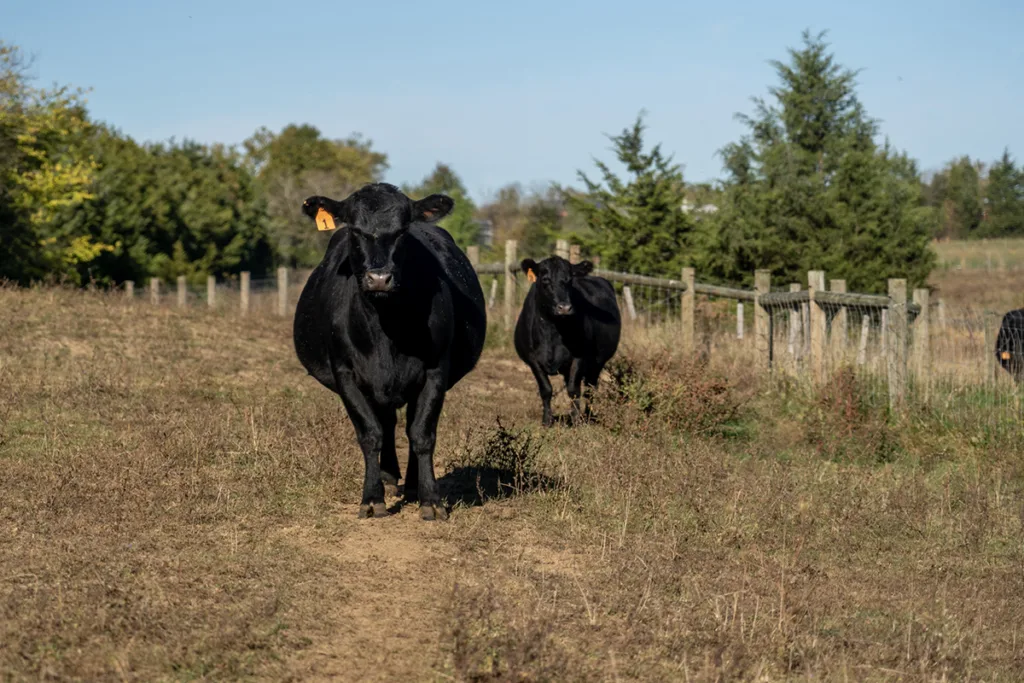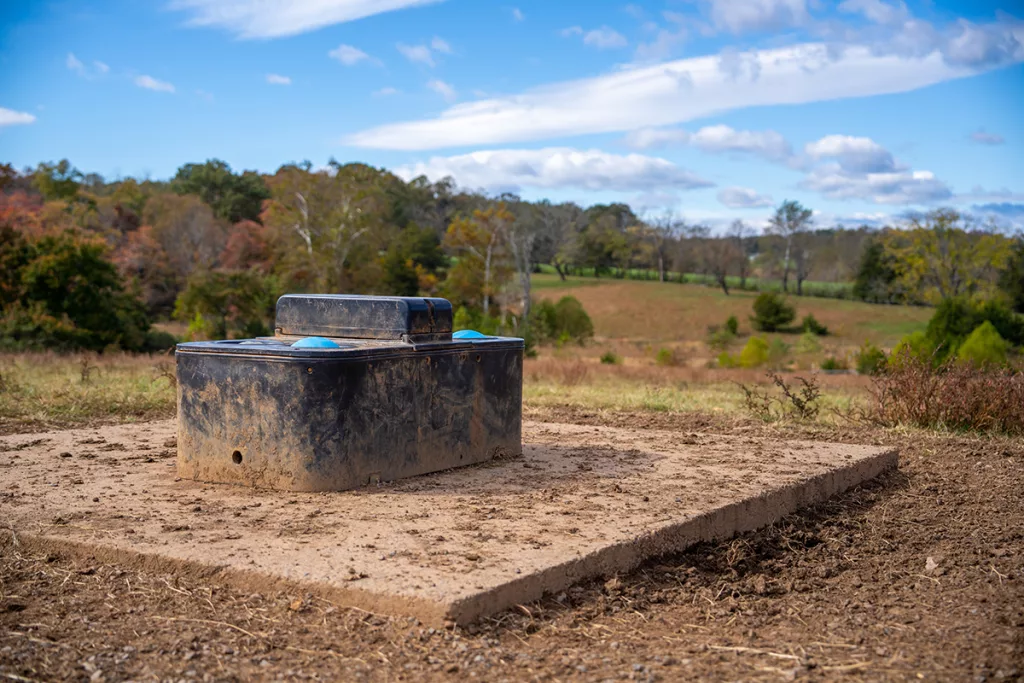For over 20 years, The Piedmont Environmental Council has played a leadership role in preserving the historic and scenic landscape at Gilberts Corner, including at our Roundabout Meadows property—a living model of how working ag and nature can coexist.
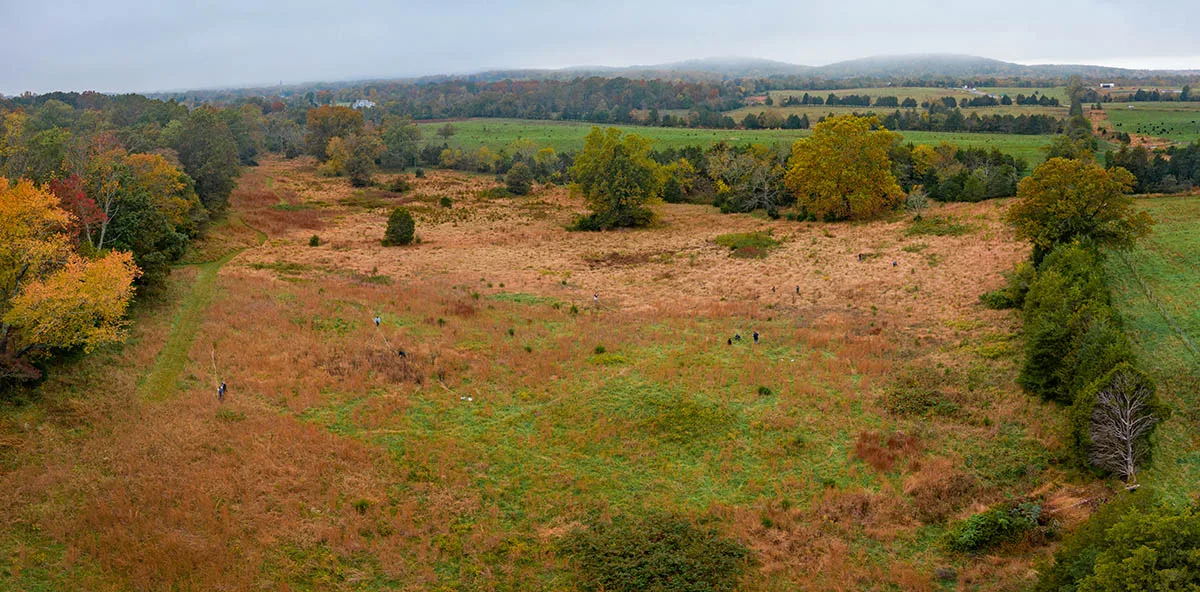
In 2013, PEC accepted a gift from Roundabout Partners LLC of a 141-acre farm property located in the area due southeast of Gilberts Corner. This property, named Roundabout Meadows in 2016, offers a variety of natural, historic, scenic and cultural resources. PEC has developed a robust management plan to restore pasture and soil health, water quality, and wildlife habitat and also create a sustainable vegetable production operation at our Community Farm.
Roundabout Meadows has been historically used as a working cattle farm and is currently leased to local cattle farmers. The pastures have become considerably degraded after years of intensive grazing and the cattle had been allowed to access Howser’s Branch for water, which has caused significant water quality issues that extend beyond the property boundaries. In the fall of 2016, PEC completed the first major restoration project on the farm by installing over 2 miles of fencing, which will prevent livestock from entering the property’s waterways. Additionally, the farm is also serving as a demonstration site. PEC hosts outreach activities for local landowners and farmers that showcase agricultural and stewardship best management practices that have been implemented on the farm.
Pasture Restoration
A grazing plan for the property has been developed that will help restore pasture forage and soil health by optimizing rotational grazing methods. The property contains four large pasture areas that encompass roughly 62 acres. All of the fields are comprised mainly of cool-season pasture grasses. One of these pastures has been targeted to be restored to a native grassland.
During the summer months, livestock are hard-pressed to find nutritious forage. The typical cool-season pasture grasses (mainly fescue) cease growing during the hottest times of the year. In contrast, the growth period of native warm-season grasses, which are adapted to Virginia’s climate, occurs during the summer. By restoring native grassland on the property and incorporating it into the grazing system, livestock will be provided with nutritious forage year-round.
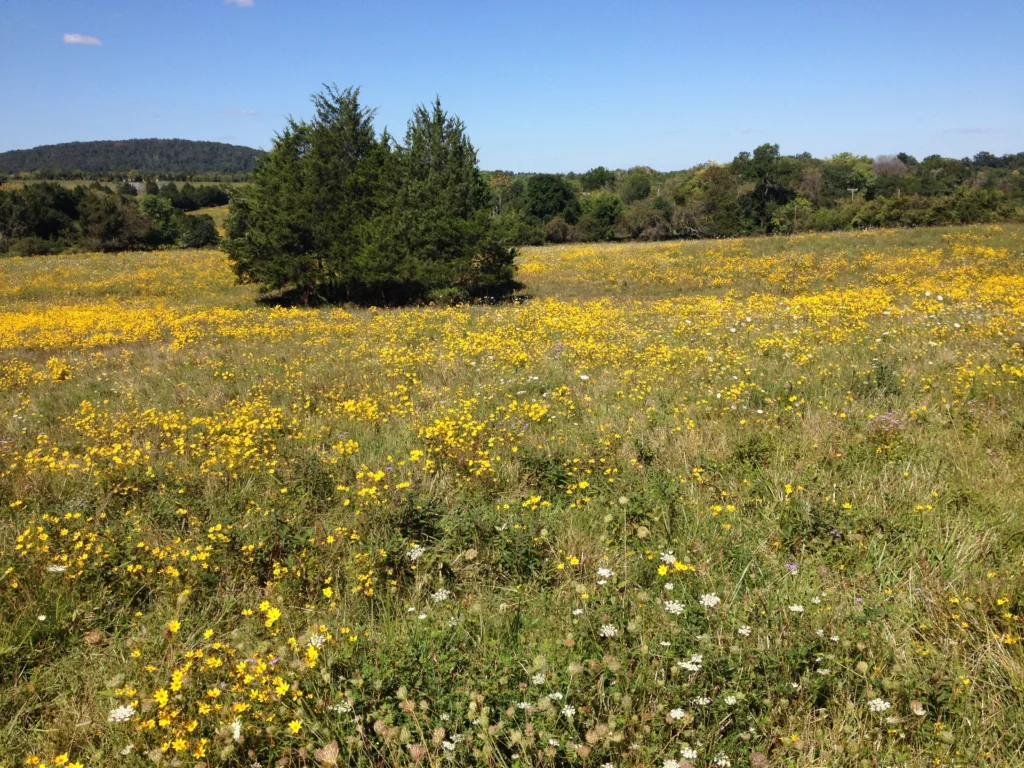
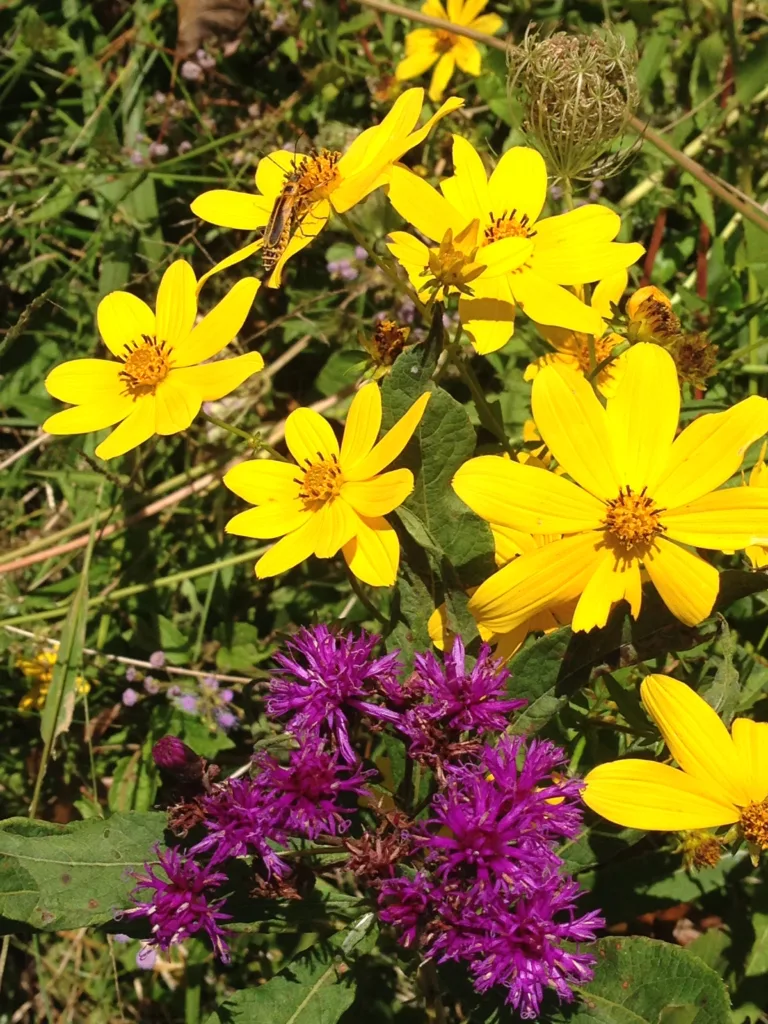
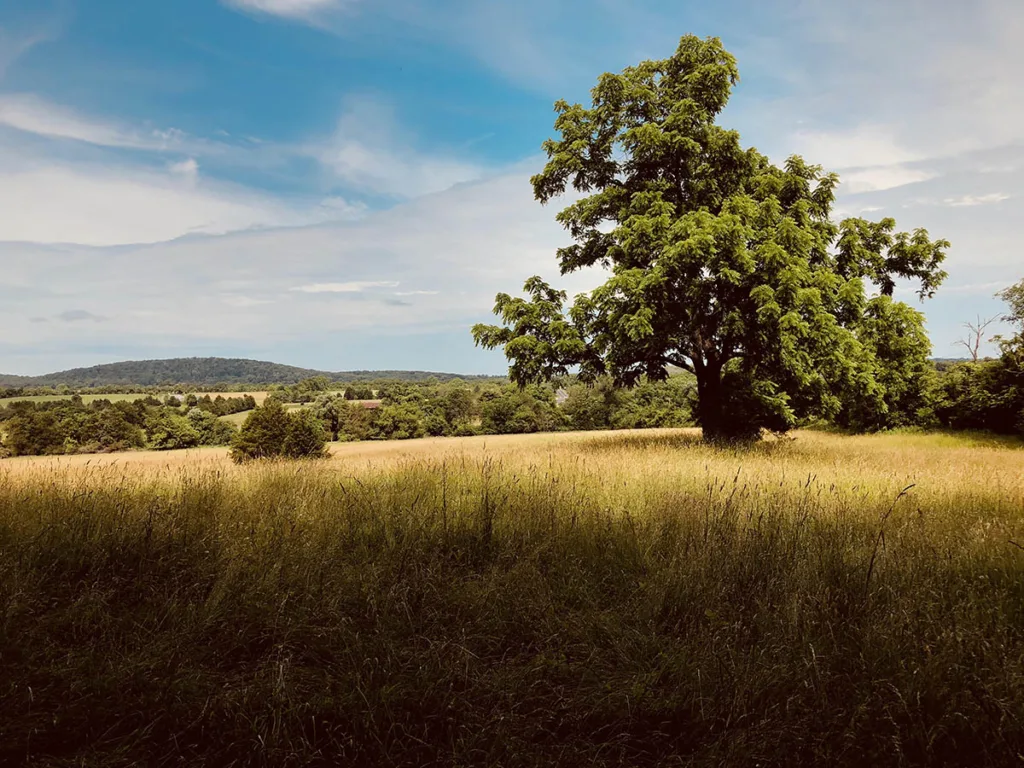
Native warm-season grasslands are also extremely valuable to many wildlife species, some of which only occur in native North American grassland ecosystems. Native grasslands have suffered more intense impact by humans than any other North American terrestrial ecosystem. In response, wildlife that rely on grasslands have adopted agricultural lands as surrogate habitat. Grasslands rely on frequent disturbance to persist, which usually takes the form of fire or grazing.
Through PEC’s Virginia Grassland Bird Initiative, rotational grazing has been implemented across the pastures, with 20+ acres dedicated to summer stockpiling. Summer stockpiling involves removing cattle from select pastures during the spring and summer months, which not only protects nesting grassland birds but also results in better soil health and improved forage availability in late summer. As a result, this restoration project will benefit both livestock and wildlife.
Wetland and Wildlife Preserve
A walk down the Old Carolina Road Trail leads to the entrance to PEC’s 11-acre wetland and wildlife preserve at the southeast corner of Roundabout Meadows. The out-and-back trail takes you through the preserve’s open fields and around a majestic oak grove to Howser’s Branch streambank. Formerly pastureland, PEC created the preserve after excluding livestock from this sensitive wetland area as part of our clean stream project in 2016. Now, we are watching as many native plants return!
Water Quality Improvement
While PEC continues to lease the land to local farmers to graze cattle, we’ve also implemented a series of best management practices such as stream exclusion fencing, establishing riparian buffers and installing alternative watering sources for livestock. Undertaken with assistance from the Loudoun Soil and Water Conservation District, these practices have dramatically improved water quality in Howser’s Branch and its stream tributaries. Cleaning up the streams is just part of a larger land and water stewardship project at Roundabout Meadows to restore natural resources and improve agricultural productivity.
